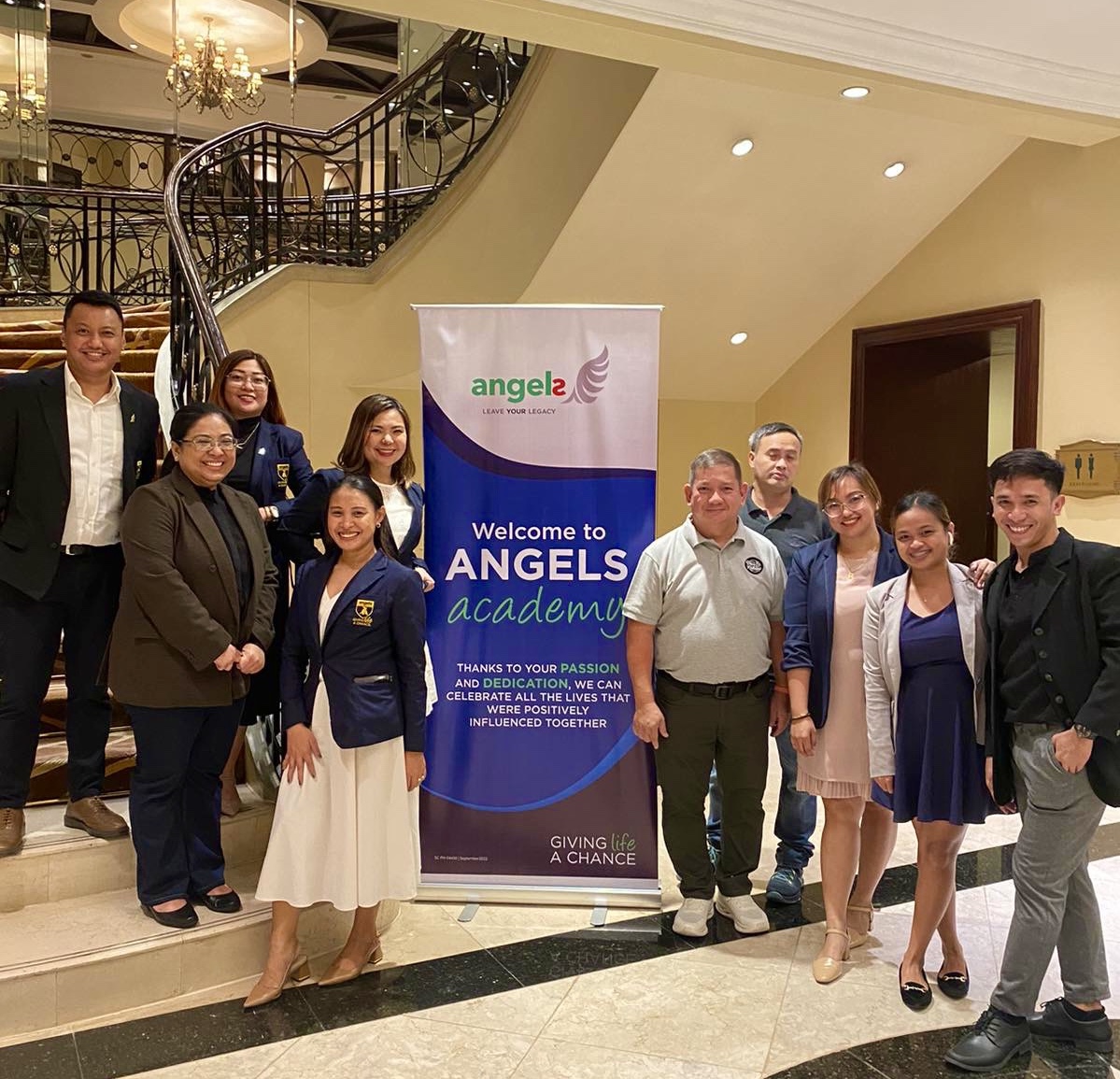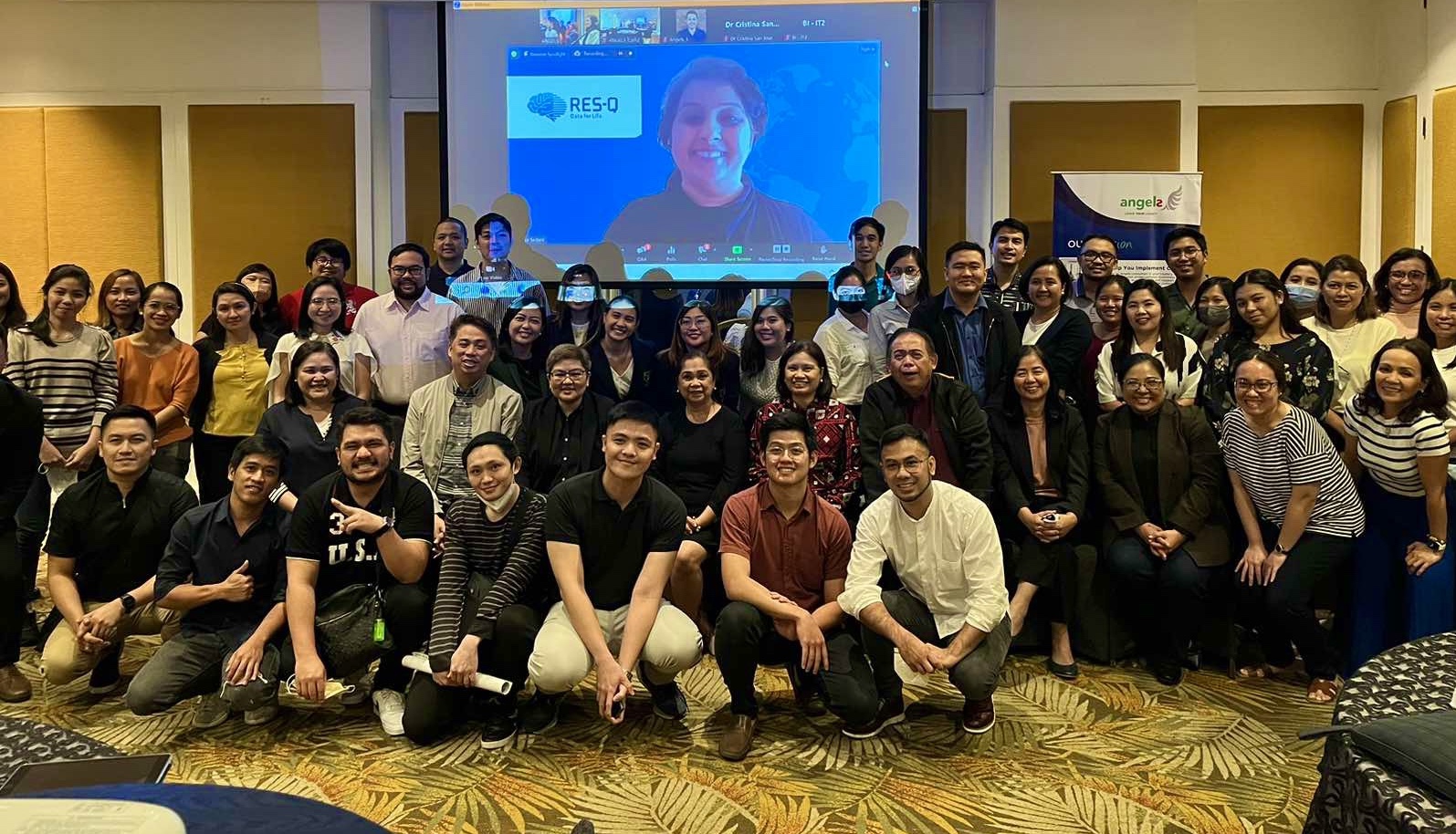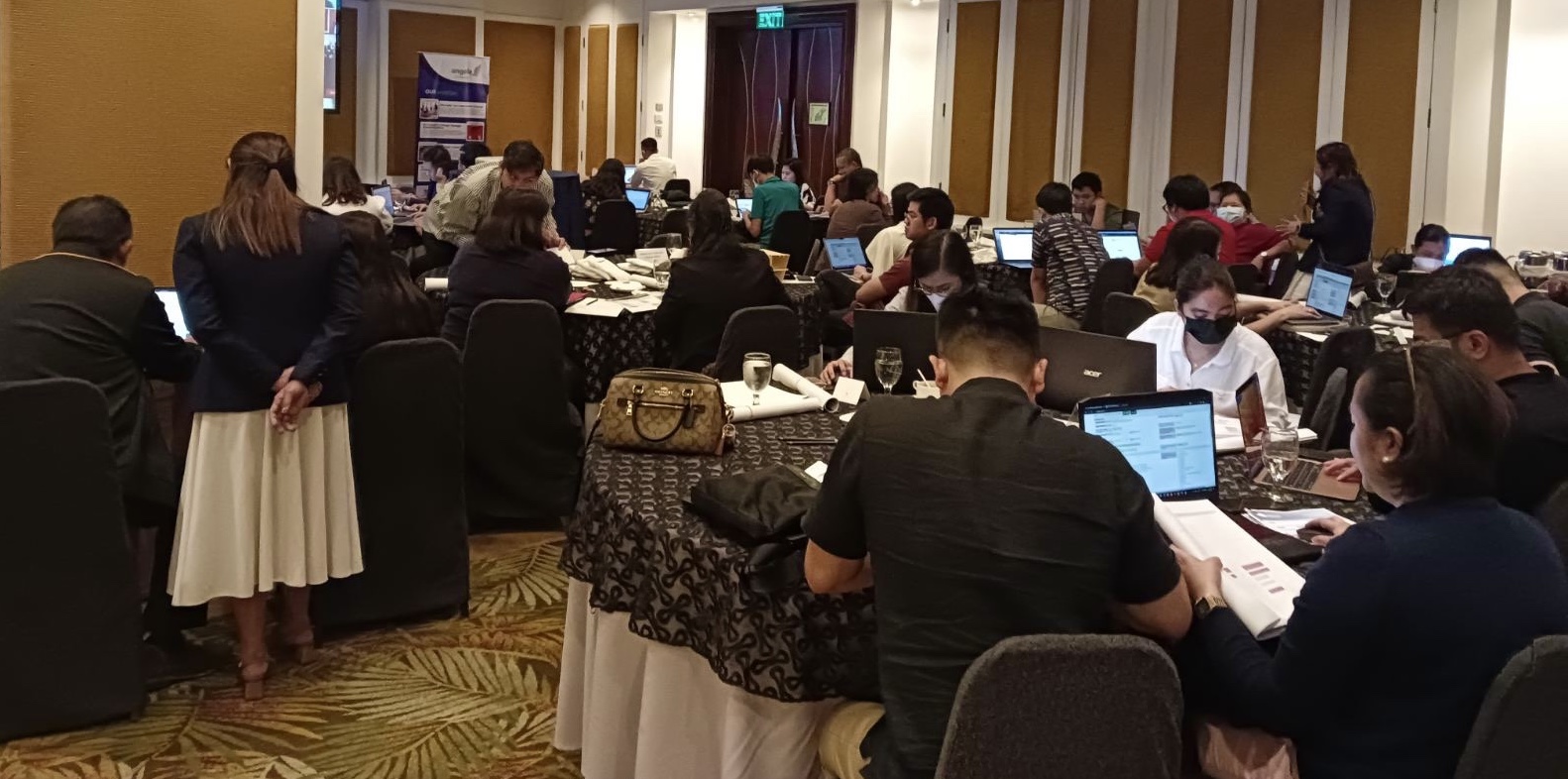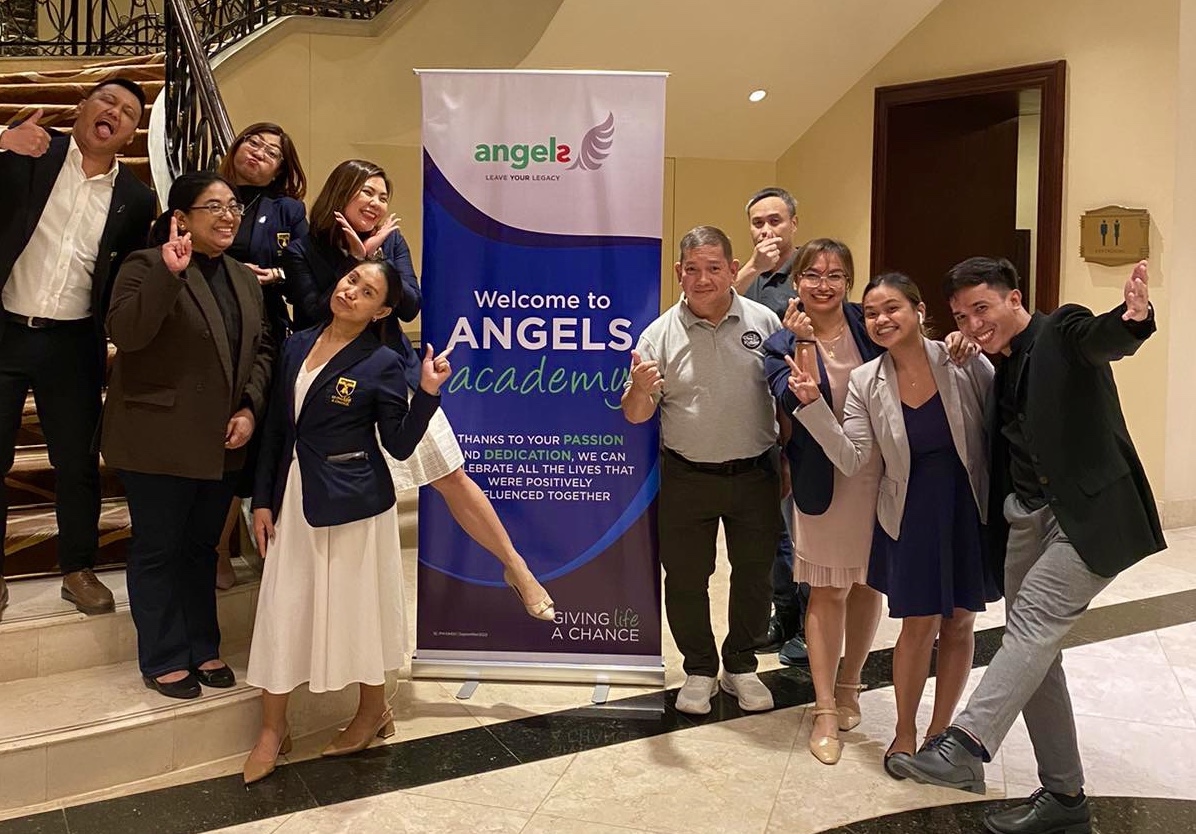
“THERE are things known and there are things unknown, and in between are the doors of perception.” This quote, attributed to the English writer Aldous Huxley, offers a metaphor for the idea that perception keeps us from knowing more than we already do.
The perception that something is difficult, for example, can discourage us from even trying to master it.
Opening the door of perception was a key objective of a milestone meeting of stroke care professionals in the Philippine capital on 15 July 2023. On the agenda: sparking a culture of quality monitoring in stroke-ready hospitals by providing hands-on training in how – and why – to use the stroke care quality improvement registry, RES-Q.
The results would be evident in less than a month when several of the attending hospitals qualified for WSO Angels Awards.
Quality monitoring is part of an ambitious project by the Stroke Society of the Philippines (SSP) and the Angels Initiative to increase the number of stroke-ready hospitals in the country and to optimise stroke care quality in existing stroke centres. It is also a requirement for the Acute Stroke Ready Hospital (ASRH) Certification Programme that the SSP rolled out early in 2023.
Hospitals seeking certification must demonstrate that they have the capacity and infrastructure to provide timely, evidence-based care to acute stroke patients. To achieve initial certification, hospitals must have an acute stroke team, imaging and laboratory testing capability and the capacity to thrombolysed. Additional criteria for full accreditation include having written stroke protocols, an annual stroke education plan, and evidence of data collection and using data to improve performance. This final criterion was what the July meeting was about.
The SSP had already adopted and endorsed RES-Q for quality monitoring – and was among the first to do so at country level – but Angels team leader Krissy Avestro and her team faced an uphill battle overcoming perceptions that using RES-Q was complex and time-consuming.
“It took a long time,” she says. “Over the course of three years we’d register a hospital here and two hospitals there.” But the expanded partnership with the SSP made all the difference.
The SSP-ASRH programme provided a platform for a national intervention to establish quality monitoring at certified hospitals, and the meeting on 15 July was a key part of that strategy. Attended by representatives of 47 ASRH certified hospitals, and addressed by leaders in the Philippine stroke community, this was an opportunity to light many candles with one flame.

THE agenda carried the names of two former WSO Spirit of Excellence nominees – current SSP president Dr Maria Socorro Sarfati, and past president Dr Epifania Collantes. They were joined by another past SSP president Dr Cristina San Jose, a believer in the Angels Initiative from the outset, who shares the role of RES-Q national coordinator with Dr Collantes. “Having these influential stroke advocates on board has made a massive impact on where we are now as a country,” Krissy says.
Dr Sarfati’s opening remarks emphasised the importance of quality monitoring for a coherent national strategy followed by a message from World Stroke Organization (WSO) president Prof Sheila Martins affirming WSO support for the SSP and the partnership with Angels.
Next, Dr San Jose introduced RES-Q and the WSO Angels Awards and discussed audit and quality improvements to bridge the gap in knowledge-to-action in stroke care. She was succeeded at the podium by Dr Collantes who urged hospitals to share their data consistently and not only if it met awards standards. Awards were the icing on the cake, she said, but comprehensive data was needed to track stroke care progress as a country. “We need real data so we can address real gaps.”
Delegates had been briefed to prepare data for three to five consecutive stroke cases from their hospitals for the RES-Q training workshop conducted remotely by RES-Q global manager Rupal Sedani and supported by Angels consultants on-site.
The workshop was an eye-opener for delegates who previously believed that registering data in RES-Q was onerous and complex.
“Once they tried it, they could see for themselves their data wasn’t that difficult,” Krissy says. “They’d thought it was complicated, but during the workshop they discovered that it was not. We could sense their excitement.”
The potential impact of data collection on stroke care quality was also immediately evident. An initial analysis gave delegates information on protocol deviatons that were causing delays in stroke care at their hospitals. In cases where this initial analysis indicated the potential for award status, delegates left the meeting intent on meeting the deadline for the quarter two awards.
In her closing remarks Dr San Jose provided further insights on how to use data besides troubleshooting underperformance, tracking progress, and receiving recognition. Data was also useful for future research, she said, as well as to motivate for resources needed to provide the highest quality of care to stroke patients.

IF unlocking the door of perception was the goal, post-event feedback indicated that this meeting provided the key. Not only were more hospitals reaching out to the Angels team for support, but barely a month of the RES-Q training, theWSO Angels Awards told the story. Makati Medical Centre went from platinum to diamond, and four hospitals did indeed make their first appearance on the awards stage for quarter 2 of 2023 – Asian Hospital Medical Center, Ilocos Training Regional Medical Center, Dr. Paulino J. Garcia Memorial Research and Medical Center, and St. Lukes Medical Center – Quezon City. All of them had paticipated in the RES-Q training, and now served as inspiration for the rising number of of WSO Angels-recognised hospitals making quality monitoring a priority.
Whereas before they struggled to convince hospitals to consider RES-Q as a quality monitoring platform, the Angels team in the Philippines could now count on having RES-Q champions at hospitals throughout the country, Krissy reflected on LinkedIn.
Those champions would not be walking alone: “The Angels team and the SSP will continue to work together,” Krissy says, “And we will continue to walk alongside hospitals, for the sake of all the stroke patients and their loved ones in our country.”


